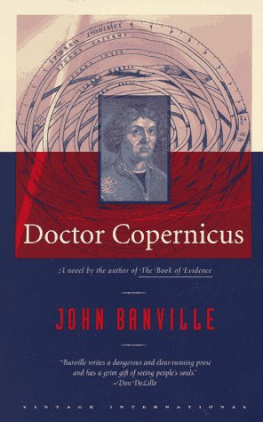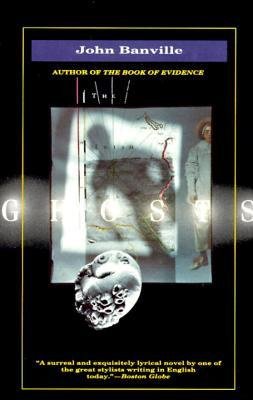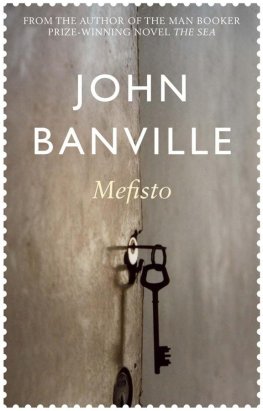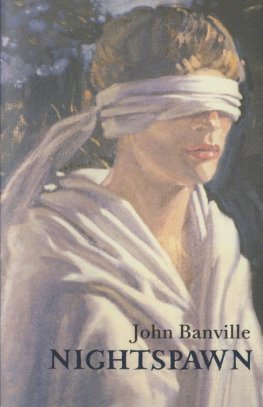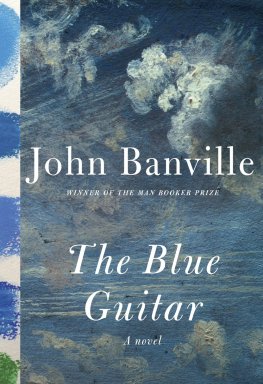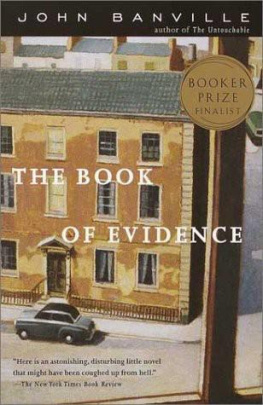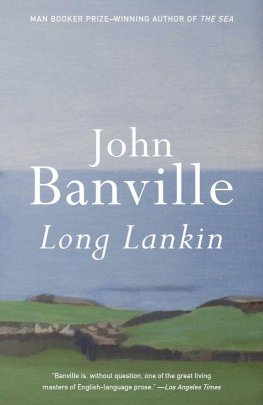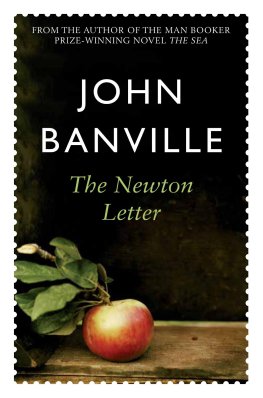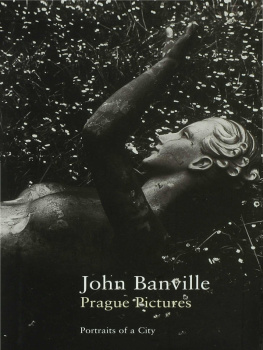Doctor Copernicus
J ohn B anville
in memoriam Douglas Synnott
Acknowledgments
A fully comprehensive bibliography would be wholly inappropriate, and probably impossible to compile, in a work of this nature; nevertheless, there is a small number of books which, during the years of composition of Doctor Copernicus, have won my deep respect, and whose scholarship and vision have been of invaluable help to me, and these I must mention. I name them also as suggested further reading for anyone seeking a fuller and perhaps more scrupulously factual account of the astronomers life and work.
The standard biography is Ludwig Prowes Nicolaus Copernicus (2 vols., Berlin, 1883-4); it has not, however, been translated into English, so far as I can ascertain. Two brief and delightful accounts of the life and work are Angus Armitages Copernicus, Founder of Modern Astronomy (London, 1938), and Sun, Stand Thou Still (London, 1947). A more technical, but very elegant and readable explication of the heliocentric theory is contained in Professor Fred Hoyles Nicolaus Copernicus (London, 1973). However, the two works on which I have mainly drawn are Thomas S. Kuhns The Copernican Revolution (Harvard, 1957), and Arthur Koestlers The Sleepwalkers: A History of Mans Changing Vision of the Universe (London, 1959). To these two beautiful, lucid and engaging books I owe more than a mere acknowledgment can repay.
For the light which they shed upon the history and thought of the period I am grateful to F. L. Carsten, whose The Origins of Prussia (Oxford, 1954) was extremely helpful; Frances A. Yates, who, in Giordano Bruno and the Hermetic Tradition (London, 1964), revealed the influences of Hermetic mysticism and Neoplatonism upon Copernicus and his contemporaries; W. P. D. Wightmans Science in a Renaissance. Society (London, 1972), and M. E. Malletts The Borgias (London, 1969).
I must emphasise, however, that any factual errors, willed or otherwise, and all questionable interpretations in this book are my own, and are in no way to be imputed to the sources listed above.
*
As well as the numerous extracts from Copernicuss own writings which I have incorporated in my text, and which I do not feel I need to identify, I have quoted from six different sources, which are identified in the Note on p. 244.
*
For their help and encouragement, I wish to thank the following: David Farrer, Dermot Keogh, Terence Killeen, Seamus McGonagle, Douglas Sealy, Maurice P. Sweeney, and the staff of Trinity College Library, Dublin. The final word of thanks must go to my wife, Janet, for her patience and fortitude, and for the benefit of her unerring judgment. You must become an ignorant man again And see the sun again with an ignorant eye And see it clearly in the idea of it.
Wallace Stevens, Notes Toward a Supreme Fiction
I
Orbitas Lumenque
At first it had no name. It was the thing itself, the vivid thing. It was his friend. On windy days it danced, demented, waving wild arms, or in the silence of evening drowsed and dreamed, swaying in the blue, the goldeny air. Even at night it did not go away. Wrapped in his truckle bed, he could hear it stirring darkly outside in the dark, all the long night long. There were others, nearer to him, more vivid still than this, they came and went, talking, but they were wholly familiar, almost a part of himself, while it, steadfast and aloof, belonged to the mysterious outside, to the wind and the weather and the goldeny blue air. It was a part of the world, and yet it was his friend.
Look, Nicolas, look! See the big tree!
Tree. That was its name. And also: the linden. They were nice words. He had known them a long time before he knew what they meant. They did not mean themselves, they were nothing in themselves, they meant the dancing singing thing outside. In wind, in silence, at night, in the changing air, it changed and yet was change-lessly the tree, the linden tree. That was strange.
Everything had a name, but although every name was nothing without the thing named, the thing cared nothing for its name, had no need of a name, and was itself only. And then there were the names that signified no substantial thing, as linden and tree signified that dark dancer. His mother asked him who did he love the best. Love did not dance, nor tap the window with frantic fingers, love had no leafy arms to shake, yet when she spoke that name that named nothing, some impalpable but real thing within him responded as if to a summons, as if it had heard its name spoken. That was very strange.
He soon forgot about these enigmatic matters, and learned to talk as others talked, full of conviction, unquestioningly.
The sky is blue, the sun is gold, the linden tree is green. Day is light, it ends, night falls, and then it is dark. You sleep, and in the morning wake again. But a day will come when you will not wake. That is death. Death is sad. Sadness is what happiness is not. And so on. How simple it all was, after all! There was no need even to think about it. He had only to be, and life would do the rest, would send day to follow day until there were no days left, for him, and then he would go to Heaven and be an angel. Hell was under the ground. Matthew Mark Luke and John
Bless the bed that I lie on If I die before I wake
Ask holy God my soul to take
He peered from behind clasped hands at his mother kneeling beside him in the candlelight. Under a burnished coif of coiled hair her face was pale and still, like the face of the Madonna in the picture. Her eyes were closed, and her lips moved, mouthing mutely the pious lines as he recited them aloud. When he stumbled on the hard words she bore him up gently, in a wonderfully gentle voice. He loved her the best, he said. She rocked him in her arms and sang a song.
See saw Margery Daw
This little chicken Got lost in the straw
*
He liked to lie in bed awake, listening to the furtive noises of the night all around him, the creaks and groans and abrupt muffled cracks which he imagined were the voice of the house complaining as, braced under the weight of the enormous darkness outside, it stealthily stretched and shifted the aching bones of its back. The wind sang in the chimney, the rain drummed on the roof, the linden tree tapped and tapped, tap tap tap. He was warm. In the room below his room his mother and father were talking, telling each other of their doings that day abroad in the world. How could they be so calm, and speak so softly, when surely they had such fabulous tales to recount? Their voices were like the voice of sleep itself, calling him away. There were other voices, of churchbells gravely tolling the hours, of dogs that barked afar, and of the river too, though that was not so much a voice as a huge dark liquidy, faintly frightening rushing in the darkness that was felt not heard. All called, called him to sleep. He slept.
But sometimes Andreas in the bed in the corner made strange noises and woke him up again. Andreas was his older brother: he had bad dreams.
The children played games together. There was hide and seek, and hide the linger, jack stones and giant steps, and others that had no names. Katharina, who was older than Andreas, soon came to despise such childish frivolity. Andreas too grew tired of play. He lived in his own silent troubled world from whence he rarely emerged, and when he did it was only to pounce on them, pummelling and pinching, or twisting an arm, smiling, with eyes glittering, before withdrawing again as swiftly as he had come. Barbara alone, although she was the eldest of the four, was always glad of the excuse to abandon her gawky height and chase her little brother on all fours about the floor and under the tables, grinning and growling like a happy hound all jaws and paws and raggedy fur. It was Barbara that he loved the best, really, although he did not tell anyone, even her. She was going to be a nun. She told him about God, who resembled her strangely, an amiable, loving and sad person given to losing things, and dropping things. He it was, struggling to hold aloft so much, that fumbled and let fall their mother from out his tender embrace.
Next page
